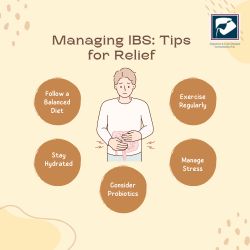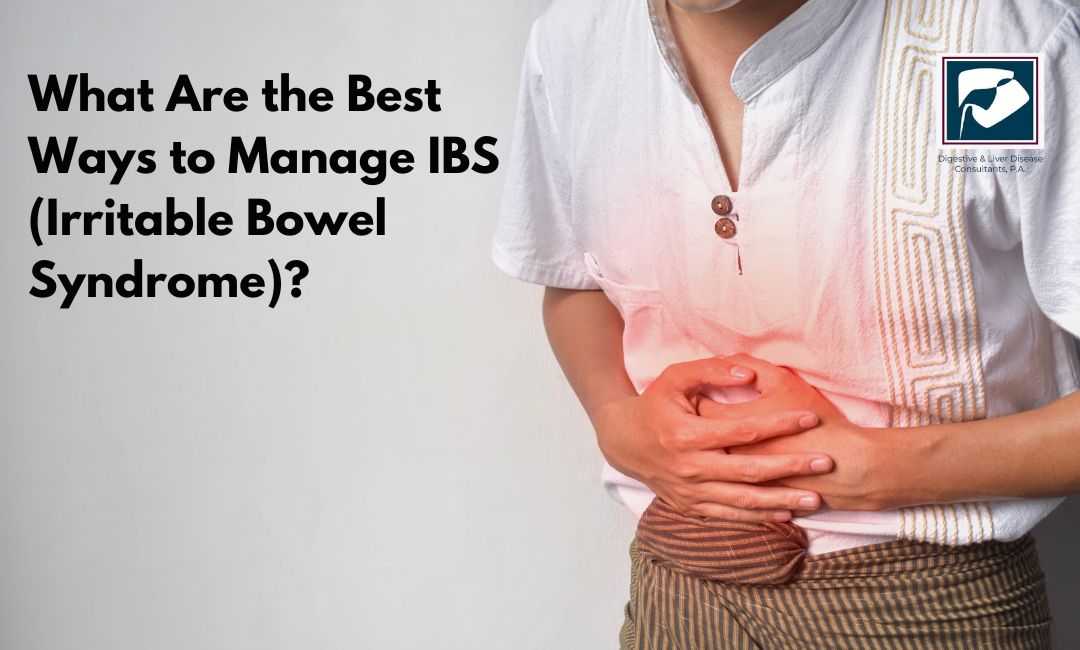Irritable Bowel Syndrome (IBS) is a common digestive disorder that affects millions of people worldwide. It can cause a range of symptoms such as abdominal pain, bloating, diarrhea, constipation, and changes in bowel habits. Although IBS is not a life-threatening condition, it can significantly affect the quality of life. If you're living with IBS, you're not alone, and there are several ways to manage the symptoms and improve your daily life.
What is IBS?
IBS is a chronic condition that affects the large intestine, also known as the colon. It's often characterized by a combination of symptoms, which can vary from person to person. The exact cause of IBS is still unclear, but factors like stress, food triggers, and abnormal muscle contractions in the intestines can contribute to its development.
There are different types of IBS, including:
- IBS with diarrhea (IBS-D): Frequent loose stools or diarrhea.
- IBS with constipation (IBS-C): Difficulty passing stools or constipation.
- IBS with mixed symptoms (IBS-M): A combination of diarrhea and constipation.
- IBS Unclassified (IBS-U): Symptoms that don’t fit into the above categories.
Although IBS is a chronic condition, its symptoms can come and go, often triggered by certain foods, stress, or changes in routine.
Managing IBS: Tips for Relief
While there’s no cure for IBS, there are several effective strategies for managing symptoms. Let’s explore some of the best ways to take control of your condition.
1. Follow a Balanced Diet
Your diet plays a crucial role in managing IBS symptoms. Identifying and avoiding trigger foods is key to reducing flare-ups. Common triggers include:
- Fatty foods
- Caffeine
- Dairy products
- Fried foods
- Spicy foods
- Alcohol
A good place to start is by keeping a food diary. Note what you eat and when your symptoms occur. This can help you identify patterns and pinpoint foods that might be contributing to your discomfort.
One popular dietary approach for managing IBS is the Low FODMAP Diet, which eliminates high-fermentable carbohydrates (FODMAPs) that can cause bloating and gas. It’s best to follow this diet under the guidance of a healthcare provider, as it can be restrictive.
2. Stay Hydrated
Staying hydrated is essential for overall health and can help manage IBS symptoms, especially if constipation is an issue. Drinking plenty of water throughout the day helps keep your digestive system functioning smoothly.
Try to limit drinks that can irritate the gut, such as caffeinated beverages, alcohol, and carbonated drinks, as they may exacerbate symptoms like bloating and discomfort.

3. Exercise Regularly
Physical activity has been shown to have positive effects on digestive health. Exercise can help regulate bowel movements, relieve stress, and reduce symptoms like bloating and constipation. A brisk walk, yoga, swimming, or light jogging can be excellent choices for IBS sufferers.
It’s important to find an activity you enjoy and aim for regular physical activity throughout the week. Even small amounts of exercise can have a big impact on how you feel.
4. Manage Stress
Stress is a known trigger for IBS flare-ups. The brain and gut are closely connected, and emotions like anxiety or stress can disrupt normal digestive function. Learning how to manage stress is vital in controlling IBS symptoms.
Techniques like deep breathing, meditation, progressive muscle relaxation, and mindfulness can help calm the mind and reduce stress. Additionally, regular exercise is a great way to release tension and boost mood.
If stress continues to be a major issue, speaking with a therapist or counselor could be helpful. Cognitive behavioral therapy (CBT) has shown promise in helping people with IBS manage stress and reduce symptom severity.
5. Consider Probiotics
Probiotics are beneficial bacteria that support gut health. Some studies suggest that taking probiotics may help reduce IBS symptoms, especially bloating and discomfort. They can help restore the balance of good bacteria in the gut and improve digestion.
However, it’s essential to consult with your healthcare provider before starting any probiotic supplements, as they may not be suitable for everyone. Your doctor can help you choose the right type and dosage for your needs.
6. Medications
If lifestyle changes and dietary adjustments aren’t enough to manage IBS, medications may be prescribed. These can include:
- Antispasmodics: These help relieve abdominal cramps and pain.
- Fiber supplements: These can help regulate bowel movements, especially in cases of constipation.
- Laxatives: For those with IBS-C, laxatives can be used occasionally to relieve constipation.
- Antidiarrheal medications: These can help control diarrhea in IBS-D.
- Antidepressants: In some cases, low-dose antidepressants may be prescribed to manage pain and stress.
Your doctor can help you determine which medication, if any, is right for you based on your specific symptoms.
7. Cognitive Behavioral Therapy (CBT)
For many people with IBS, stress and anxiety play a significant role in symptom management. CBT is a therapeutic approach that focuses on changing negative thought patterns and behaviors that contribute to stress. Studies have shown that CBT can help reduce IBS symptoms and improve overall well-being.
8. Regular Sleep Patterns
Getting enough rest is crucial for managing IBS symptoms. Poor sleep can exacerbate stress, leading to digestive issues. Try to maintain a consistent sleep schedule, create a relaxing bedtime routine, and avoid caffeine or alcohol in the evening.
When to See a Doctor
If your IBS symptoms are severe, frequent, or don’t improve with lifestyle changes, it’s important to consult a healthcare provider. A gastroenterologist can help diagnose IBS and rule out other conditions. They can also provide personalized treatment options and support.
At DLDC (Digestive & Liver Disease Consultants P.A), we specialize in diagnosing and treating gastrointestinal disorders, including IBS. If you're struggling with IBS symptoms and need expert guidance, don’t hesitate to reach out.
Conclusion
Living with IBS can be challenging, but with the right strategies, you can manage your symptoms and improve your quality of life. By following a balanced diet, staying hydrated, exercising regularly, managing stress, and seeking medical advice when needed, you can take control of your digestive health.
Don’t let IBS control your life. Schedule an appointment with DLDC today and take the first step toward better digestive health.






